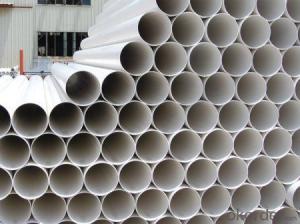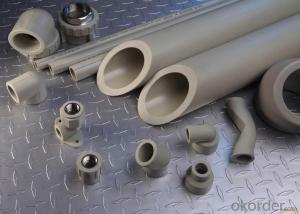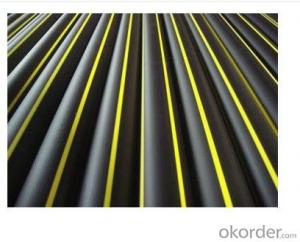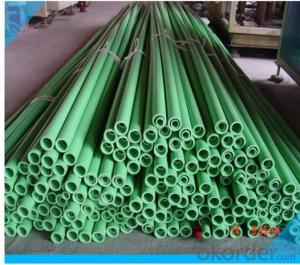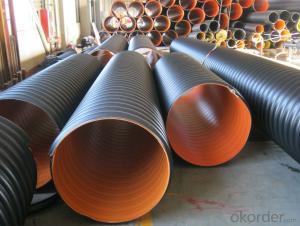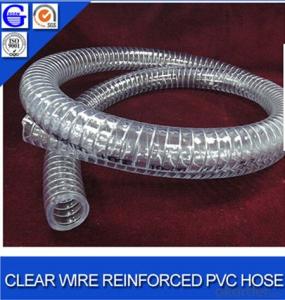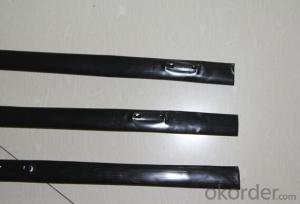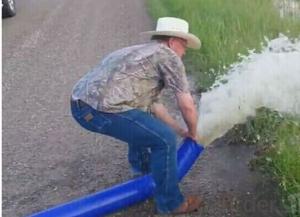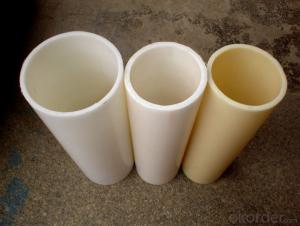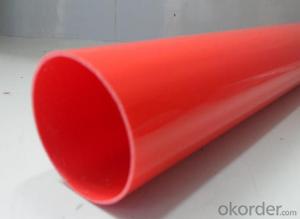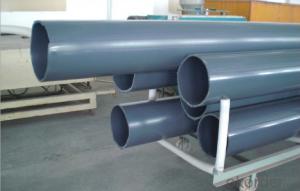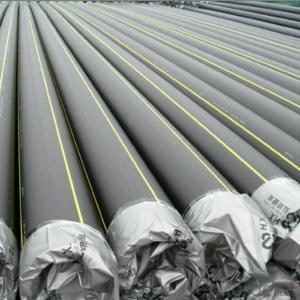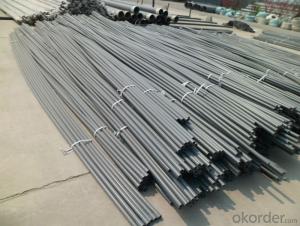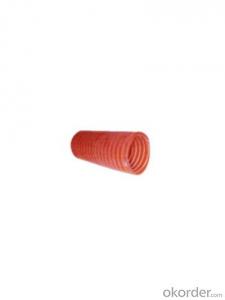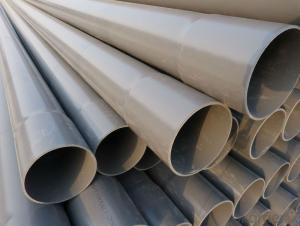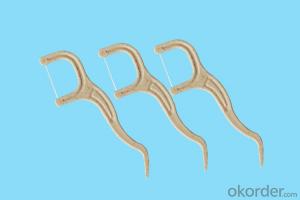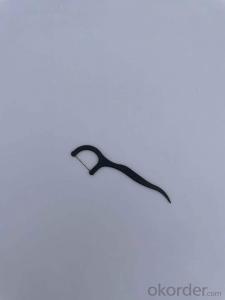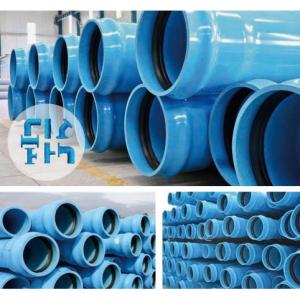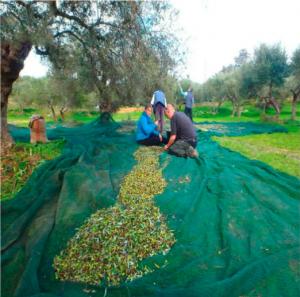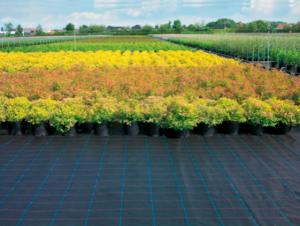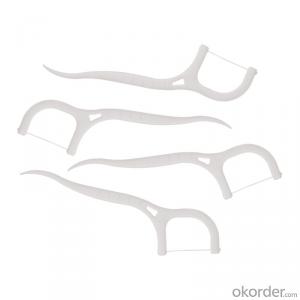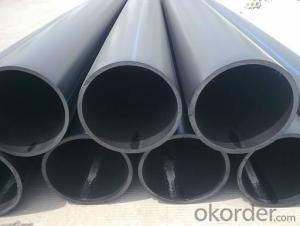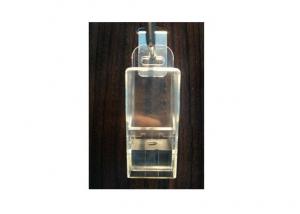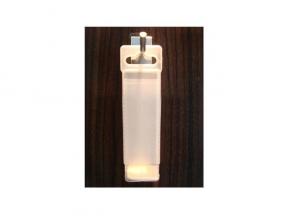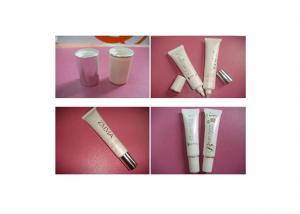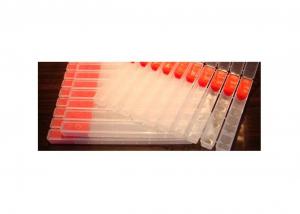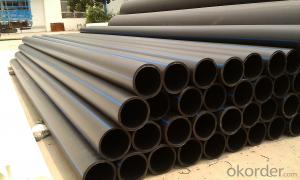PVC Pipe Wall Thickness:1.6mm-26.7mm Specification
- Loading Port:
- China main port
- Payment Terms:
- TT OR LC
- Min Order Qty:
- 999 pc
- Supply Capability:
- 9999 pc/month
OKorder Service Pledge
OKorder Financial Service
You Might Also Like
1. Description of PVC Pipe :
Material: Virgin Rigid PVC resin, no recycle material
Process: vacuum forming extrusion
Color: various colors, we can make color according to Panton card No.
Back working procedure: precise length cutting, drilling/slotting/punching, gold stamping, quality inspection, cleaning, assembling, and packing.
Application:construction, home decoration, stationery&toy, advertising, ornament, etc.
2.Features of pvc pipes :
1) Structure Engineering, home water supply and drainage
2) Water drainage/supply system
3) for Agriculture Irrigation, aquaculture
4) Strong mechanical strength: Good resistance to water pressure, outside impact and pressure, is satisfied under any conditions.
5) Good electrical insulation: excellent insulation nature against electricity. the pvc pipe can be served as conduits and pipes in construction cable and wire.
6) Simple installation: Very easy to connect, thus much time and laborcost may be saved.
3.PVC Pipe Images:
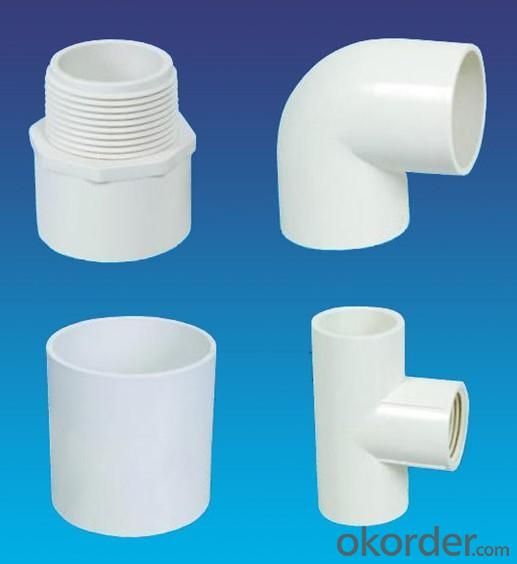
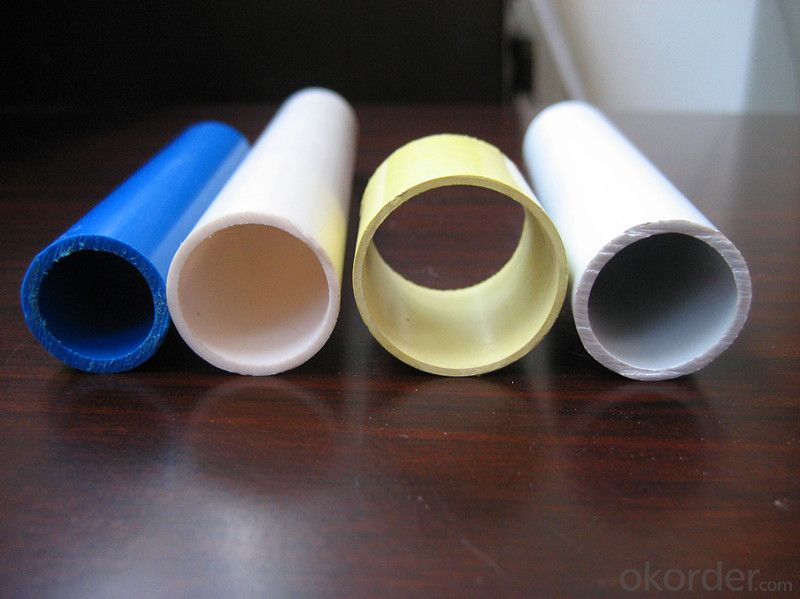
4.Specifications of the pvc pipe:
1) Material: pvc pipe unplasticized polyvinyl chloride
2) Standard: GB, ISO9001, ISO14001
3) Color: white pvc pipe, grey pvc pipe , etc.
4) Specific Gravity:g/cm3, 20(C): 1.35 - 1.55
5) Vicat Softening Temperature: (C) >=79
6) Longitudinal Reversion: %, 150(C) <=5< span=""><>
7) Dichloromethane Resistance Test: No attack
8) Falling Weight Impact Test: TIR, %, 0(C) <=10< span=""><>
9) Tensile Yield Strength: Mpa >=40
10) Fitness of Water Tightness Test: No Leakage
11) Fitness of Air Tightness Test: No Leakage
5.FAQ
Q:What is you MOQ?
A:As customer’s request.
Q:What is the production ability? or delivery time?
A:Our production ability support 40HQ order finish in one week.
Q:What is the regular shipping port?
A:Tianjin or Shanghai.
Q:What is your payment?
A:TT or CC.
Q:Can we have sample?
A:Sample free, freight cost you.
Q:For urgently doubts,who online?
A:Sales and marketing Manager 24hours online service.
- Q:Can plastic tubes be used for roller coasters?
- Yes, plastic tubes can be used for roller coasters. Plastic tubes, such as PVC or fiberglass, are lightweight, durable, and can be molded into various shapes and sizes, making them suitable for building roller coaster tracks. Additionally, plastic tubes can be more cost-effective compared to traditional materials like steel, allowing for more creative and affordable roller coaster designs.
- Q:I am in hollywood CA and I need a tornado tube, and I can not find it, what else can I use if I can not find that tube?
- We always used wide electrical tape. Works fine. [EDIT] MacGuyver was a tv show from the 80s. This guy could do anything with whatever he found lying around. You should totally check it out.
- Q:How do you prevent plastic tubes from discoloration?
- To prevent plastic tubes from discoloration, you can use UV stabilizers or additives during the manufacturing process. These additives help to protect the plastic from the harmful effects of sunlight and prevent discoloration. Additionally, storing the tubes in a cool and dark place can also help to minimize discoloration over time.
- Q:Are plastic tubes resistant to impact or pressure?
- Plastic tubes can vary in their resistance to impact and pressure depending on the type of plastic used and the specific design of the tube. Some plastic tubes are designed to be highly resistant to impact and pressure, while others may be more prone to cracking or deformation under these conditions. It is important to consider the intended application and choose a plastic tube that meets the required level of impact and pressure resistance.
- Q:Are plastic tubes suitable for use in the agriculture industry?
- Yes, plastic tubes are suitable for use in the agriculture industry. They offer various advantages such as being lightweight, durable, and resistant to corrosion and chemicals. Plastic tubes can be used for irrigation systems, transporting liquids and gases, and protecting electrical wiring. Additionally, they are cost-effective and easy to install, making them a popular choice in the agriculture industry.
- Q:What industries commonly use plastic tubes?
- Industries that commonly use plastic tubes include manufacturing, construction, automotive, pharmaceutical, food and beverage, cosmetics, and medical.
- Q:Are plastic tubes suitable for sample collection?
- Yes, plastic tubes are suitable for sample collection. They are commonly used in various scientific and medical fields for collecting and storing a wide range of samples, including blood, urine, and other bodily fluids. Plastic tubes offer advantages such as being lightweight, durable, and cost-effective. Additionally, they are compatible with different types of laboratory tests and procedures, making them a reliable choice for sample collection.
- Q:Can plastic tubes be used for display signage?
- Yes, plastic tubes can be used for display signage. They are lightweight, versatile, and easy to shape into various designs. Additionally, plastic tubes can be transparent or colored, allowing for customization and eye-catching displays.
- Q:How do plastic tubes compare to ABS tubes in terms of impact resistance?
- In terms of impact resistance, plastic tubes generally offer lower resistance compared to ABS tubes. ABS (Acrylonitrile Butadiene Styrene) tubes are known for their superior impact resistance, making them more resilient to accidental drops or heavy impacts. Plastic tubes, on the other hand, may be more susceptible to cracking or breaking when subjected to the same level of force.
- Q:What are the different types of closures available for plastic tubes?
- There are several types of closures available for plastic tubes, including screw caps, flip-top caps, snap-on caps, nozzle caps, pump dispensers, and squeeze caps. Each closure type offers different functionalities and is suitable for various applications.
1. Manufacturer Overview |
|
|---|---|
| Location | |
| Year Established | |
| Annual Output Value | |
| Main Markets | |
| Company Certifications | |
2. Manufacturer Certificates |
|
|---|---|
| a) Certification Name | |
| Range | |
| Reference | |
| Validity Period | |
3. Manufacturer Capability |
|
|---|---|
| a)Trade Capacity | |
| Nearest Port | |
| Export Percentage | |
| No.of Employees in Trade Department | |
| Language Spoken: | |
| b)Factory Information | |
| Factory Size: | |
| No. of Production Lines | |
| Contract Manufacturing | |
| Product Price Range | |
Send your message to us
PVC Pipe Wall Thickness:1.6mm-26.7mm Specification
- Loading Port:
- China main port
- Payment Terms:
- TT OR LC
- Min Order Qty:
- 999 pc
- Supply Capability:
- 9999 pc/month
OKorder Service Pledge
OKorder Financial Service
Similar products
New products
Hot products
Hot Searches
Related keywords
